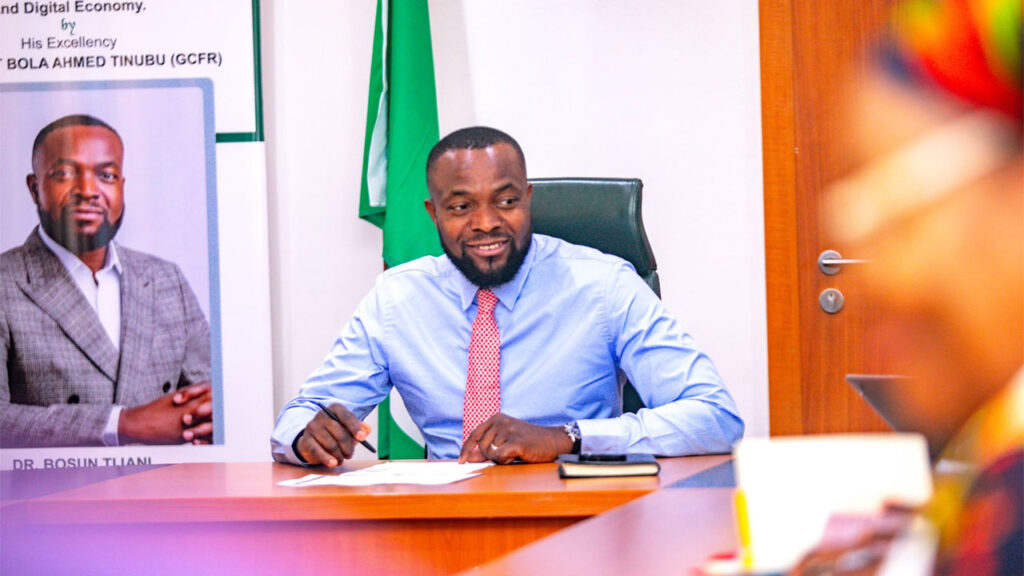 The World Bank has said that less than 20 per cent of households in Nigeria have a computer.
The World Bank has said that less than 20 per cent of households in Nigeria have a computer.
The World Bank revealed this in its 177-page report, titled: ‘Digital Progress and Trends’, where it shed light on the digital divide between low and high-income countries and its impact on the economy, business and income.
The report stated that the cost of broadband subscriptions across high and middle-income countries has been stable since 2020 but has risen significantly in low-income countries.
According to the global bank, in low-income countries, the median price of a fixed broadband plan was 50 per cent higher than in high-income countries as of 2022.
While expressing worries about the noticeable gap in the country’s digital transformation, the report observed that the rising cost of smartphones is a huge barrier to bridging the digital divide across geographical populations and income groups.
Among the lowest income groups, the cheapest smartphones cost around 14 per cent of their yearly income for persons under $2 per day. This results in 49 per cent of smartphone ownership in low-income countries compared to 95 per cent in high-income countries.
“In contrast, fewer than 20 per cent of households in the Kyrgyz Republic, Malawi, Mali, Mozambique, Myanmar, and Nigeria owned a computer.
Computer ownership is higher in other lower-income countries, although it is heavily skewed toward urban households, as in Angola, Bhutan, or Niger.”
Indeed, The Guardian had last week, reported how consumers are fast switching to used gadgets as foreign exchange crisis worsens adoption of technology.
In the report, it was highlighted that many companies have cut down significantly on their budgets for laptops, desktops and even smartphones.
A vendor had told The Guardian that companies are now settling for fairly used computers as prices rose by as much as 300 per cent.
He said vendors are seriously battling inflation, which he said has negatively impacted importation.
Indeed, with the country’s inflation galloping, which is now at about 27-Year high and as of February, according to the National Bureau of Statistics (NBS), stood at 29.9 per cent, it has crippled major sectors of the economy. It has been compounded by the removal of the petrol subsidy in May 2023 by President Bola Tinubu, allowing petrol prices hover between N550 and N700 per litre.
Consequently, people rather survive first than spending on what they see as luxury at this current time, computers, smartphones, and electronics, among others.
While DataReportal puts smartphone penetration at about 18.9 per cent of the estimated 220 million populations in Nigeria, prices have skyrocketed, making Nigerians either settle for fairly used ones or features phone. Airtel at a recent event said about 58 million Nigerians use features phone in the country.
Last year, a report by Euromonitor International had predicted that consumer electronics would suffer a seven-year low on forex scarcity in Nigeria.
Consumer electronics are largely imported into Nigeria, Africa’s biggest economy. They include computers, laptops, smartphones, TVs, virtual cameras, air conditioners, dishwashers, refrigerators, washing machines, dryers, and microwave ovens.
Euromonitor said the picture is expected to be bleak for consumer electronics in 2023 and going forward, with overall volume sales expected to fall, saying the government inherited a sluggish economy, record debt, and shrinking oil output, due to creaking infrastructure.













